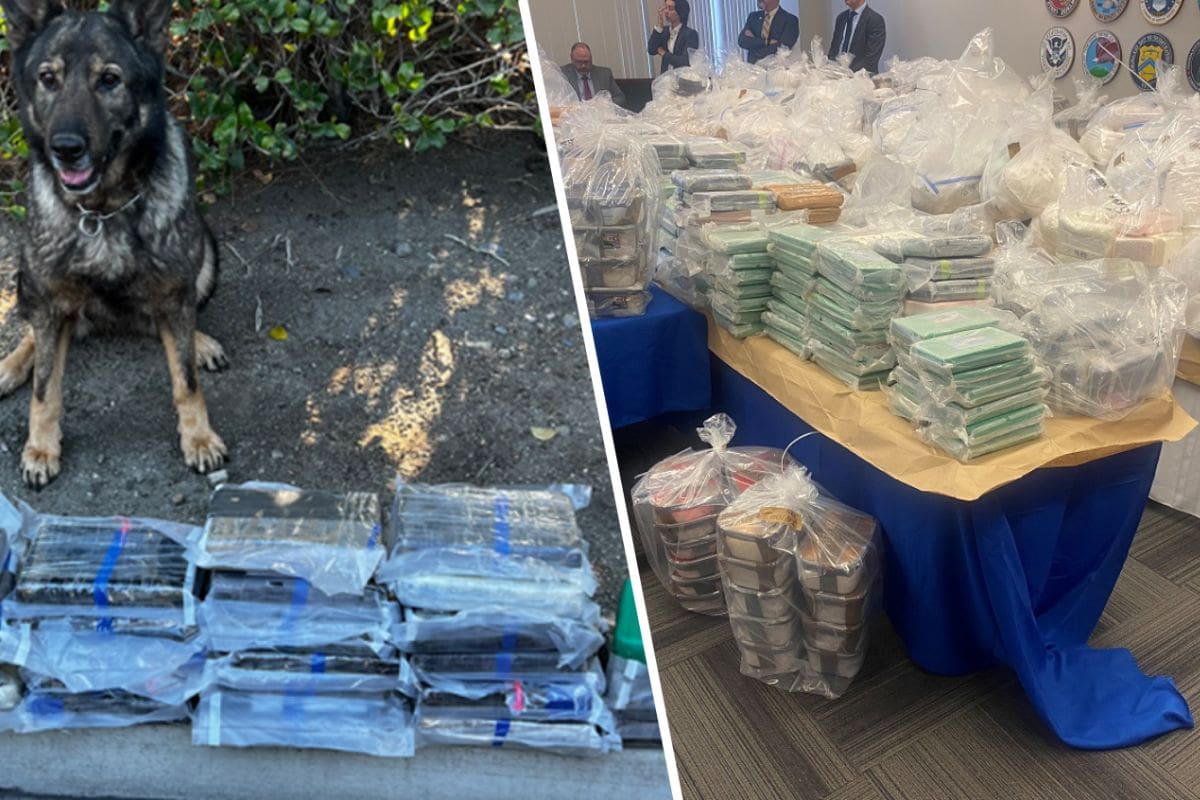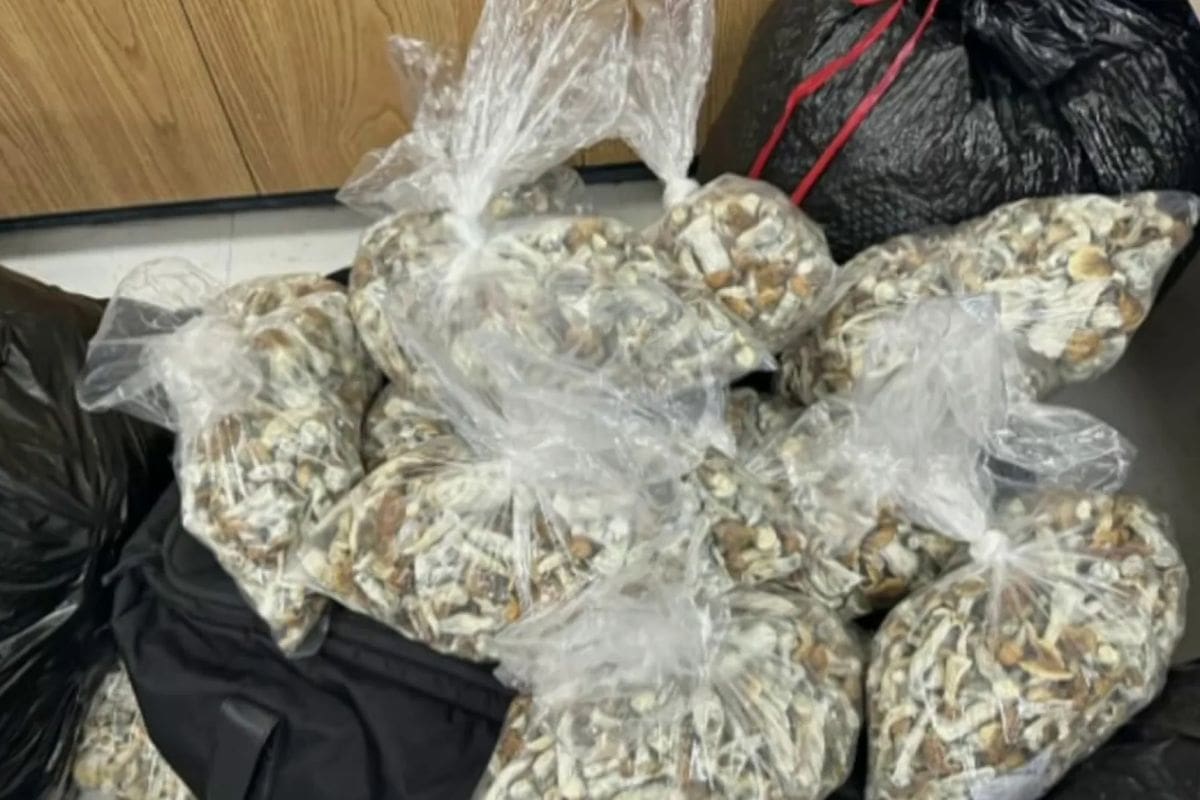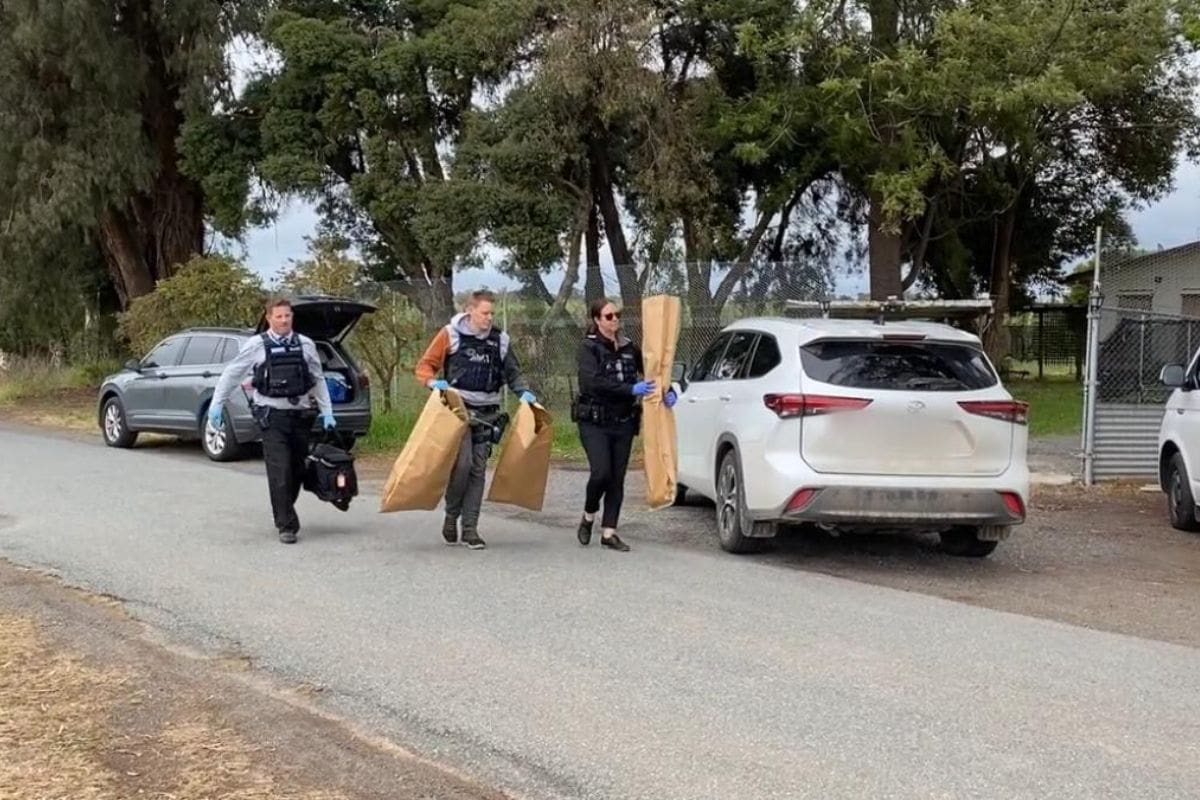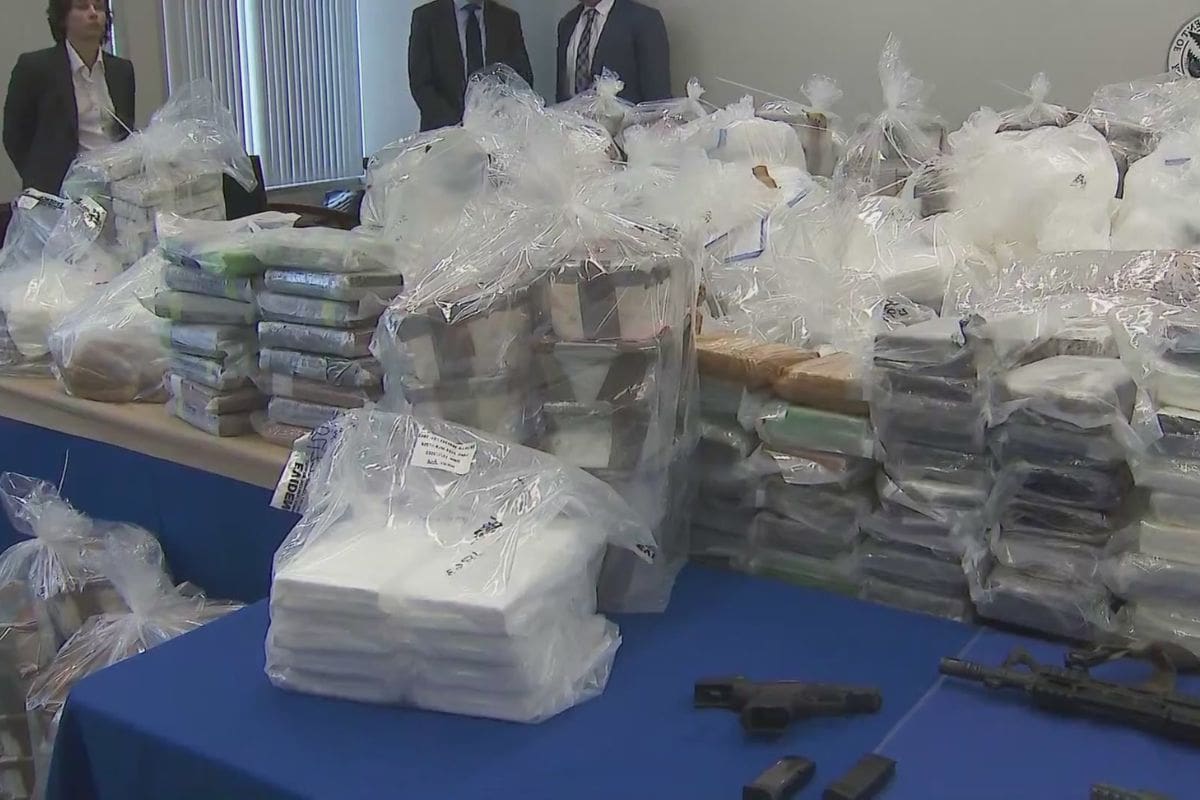FBI Strike Against International Drug: In a recent operation targeting international drug trafficking, the FBI has made significant strides in dismantling a transnational criminal enterprise. Through a strategic crackdown on an extensive drug organization, indictments and charges have been filed against key individuals involved in this illicit trade.
Furthermore, substantial drug seizures have been made, revealing the scope and magnitude of this global network. The arrests and collaborative efforts between multiple law enforcement agencies highlight the determination to disrupt and dismantle this criminal enterprise.
However, the full extent of the operation and its impact on the international drug trade is yet to be revealed, leaving many questions unanswered and urging us to deeper into this ongoing investigation.
Key Takeaways Of FBI Strike Against International Drug
- Operation Dead Hand is a joint effort between federal agencies and international partners to combat international drug trafficking.
- Nineteen individuals, including nine Southern California residents, are facing charges in connection with a sophisticated drug trafficking conspiracy.
- Significant drug seizures valued between $16-28 million, including methamphetamine, cocaine, fentanyl, and heroin, have been made.
- The investigation has uncovered a complex transnational criminal enterprise involving Mexican cartels, an Italian mafia figure, and a network of truck drivers associated with multiple trucking companies.


Crackdown on International Drug Organization
In an effort to combat international drug trafficking, federal authorities in Los Angeles have launched Operation Dead Hand, targeting an accused drug organization responsible for the trafficking of narcotics through the United States and Canada. The operation aims to dismantle the network and bring its members to justice.
The drug organization, which operates across borders, has been linked to the smuggling of various illicit drugs, including cocaine, heroin, and methamphetamine. It is alleged that the organization has been using sophisticated routes and methods to transport drugs, making it difficult for law enforcement agencies to track and intercept their activities.
Operation Dead Hand involves collaboration between federal agencies, such as the FBI and the DEA, as well as international partners, to gather intelligence, conduct targeted investigations, and dismantle the drug organization’s infrastructure.
The operation signifies a significant step forward in the fight against international drug trafficking and emphasizes the commitment of law enforcement agencies to protect communities from the harmful effects of narcotics.
Indictments and Charges
Nineteen individuals, including nine Southern California residents, are facing charges in connection with a sophisticated drug trafficking conspiracy, as revealed in two unsealed indictments.
The indictments expose the alleged involvement of these individuals in a wide-ranging drug trafficking network. The charges stem from an FBI investigation into an international drug organization, targeting the distribution of illicit substances across multiple states.
The unsealed indictments provide a glimpse into the complex nature of the conspiracy, highlighting the involvement of individuals from different geographical areas. The charges demonstrate the FBI’s commitment to dismantling drug trafficking networks and holding individuals accountable for their alleged criminal activities.
As the legal process unfolds, these indictments signify a significant step in the ongoing efforts to combat international drug trafficking and protect communities from the harmful effects of illicit drugs.
Significant Drug Seizures
Law enforcement authorities have made significant drug seizures valued between $16-28 million, uncovering large quantities of methamphetamine, cocaine, fentanyl, and heroin, as well as seizing $900,000 in cash.
These seizures highlight the scale and magnitude of the international drug trafficking operations that the FBI has been targeting. The law enforcement efforts have successfully disrupted the supply chain of illicit drugs, preventing them from reaching the streets and causing harm to individuals and communities.
The seized drugs, with their estimated street value, represent a major blow to the criminal organizations involved in drug trafficking. The authorities’ ability to dismantle these operations and seize substantial amounts of illicit substances and cash demonstrates the effectiveness of their intelligence gathering and enforcement strategies.
The ongoing efforts to combat international drug trafficking are crucial in safeguarding public safety and curtailing the influence of these criminal networks.


Also Read: California Notorious San Quentin Penitentiary
Transnational Criminal Enterprise
The investigation has uncovered a complex and far-reaching transnational criminal enterprise involving Mexican cartels, an Italian mafia figure in Montreal, and a network of truck drivers associated with multiple trucking companies spanning the U.S., Canada, and Mexico.
This revelation highlights the sophisticated nature of drug trafficking operations and the global reach of criminal organizations. The transnational criminal enterprise operates across borders, utilizing the expertise and resources of different criminal groups to facilitate the movement of drugs across international boundaries.
This network of criminals relies on intricate communication channels, well-coordinated logistics, and a web of corrupt individuals to ensure the successful transport and distribution of illegal substances.
The collaboration between Mexican cartels, an Italian mafia figure, and the network of truck drivers underscores the need for international cooperation in combating transnational organized crime.
Arrests and Collaborative Efforts
Following the revelation of a complex and far-reaching transnational criminal enterprise involved in drug trafficking, arrests have been made in Southern California as part of the collaborative efforts between U.S. and Canadian authorities to dismantle this intricate network and disrupt its operations.
The arrests, which took place in various locations in Southern California, highlight the commitment of law enforcement agencies in both countries to combat drug trafficking. By working together, these authorities aim to disrupt the operations of this transnational criminal enterprise and bring those responsible to justice.
The collaborative efforts reflect a coordinated approach towards dismantling the drug trafficking network, ensuring that the illegal activities are effectively curtailed. The arrests signify a significant step in the ongoing fight against international drug trafficking and demonstrate the effectiveness of cross-border partnerships in tackling transnational organized crime.


Conclusion Of FBI Strike Against International Drug
The FBI’s recent strike against an international drug trafficking organization has resulted in numerous indictments, charges, and significant drug seizures.
This operation has successfully targeted a transnational criminal enterprise, leading to arrests and collaborative efforts between law enforcement agencies.
These efforts are crucial in combatting drug trafficking and ensuring the safety of communities worldwide.
Our Reader’s Queries
Q1. What is the penalty for drug trafficking in California?
A. Engaging in the sale or transportation of drugs in California constitutes a felony, carrying potential penalties of 3-9 years in jail and fines reaching up to $20,000.
Q2. What is drug trafficking in California?
A. Drug trafficking involves the transportation or sale of controlled substances. Whether you are moving a quantity of drugs like heroin, opium, or cocaine over a short distance, you could face charges for violating the California Health & Safety Code.
Q3. What is the maximum sentence for drug trafficking in the US?
A. For a first offense, the penalty ranges from a minimum of 5 years to a maximum of 40 years. In cases involving death or serious injury, the sentence is not less than 20 years and could extend to life imprisonment. The fine is capped at $5 million for individuals and $25 million for non-individuals. For a second offense, the punishment is not less than 10 years, with a maximum sentence of life imprisonment.

